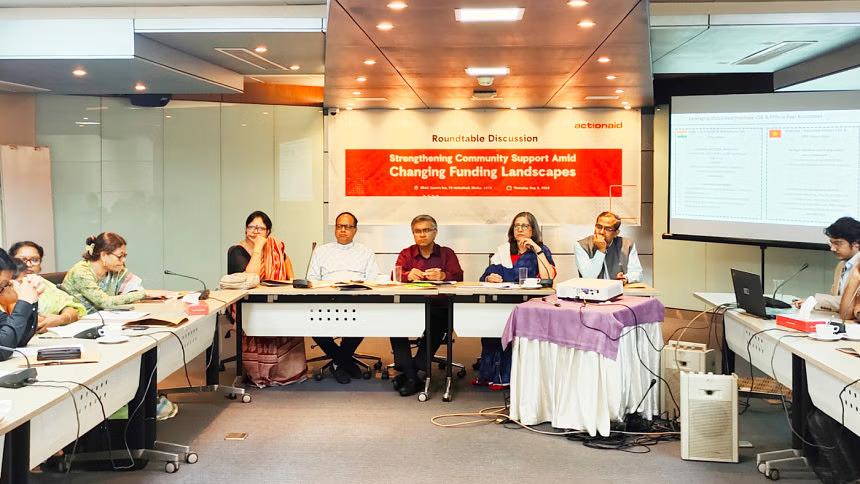Originally posted in The Daily Star on 9 May 2025
Shrinking foreign aid threatening development
Experts call for alternative funding

The declining flow of foreign aid to Bangladesh is threatening key development initiatives, particularly those supporting marginalised communities, said development experts yesterday.
In 2020, about $1 billion was in foreign assistance, according to the NGO Affairs Bureau. That amount came down to $655 million last year, down 11.6 percent year-on-year.
“The funding shortfall is already having real impacts,” said Farah Kabir, country director of ActionAid Bangladesh, at a roundtable titled ‘Strengthening Community Support Amid Changing Funding Landscapes’.
Essential services in primary healthcare and social protection are being disrupted, particularly in underserved urban and rural areas.
“Women, children, and marginalised populations are disproportionately at risk. If left unaddressed, this could lead to widening inequality, increased poverty, and erosion of public trust in development efforts,” she said at the roundtable organised by ActionAid Bangladesh at the BRAC Centre Inn in the capital’s Mohakhali.
She called for “active and collaborative” action to ensure the long-term sustainability of community support programmes.
Civil society organisations must undergo strategic transformation to remain effective after graduation from the least-developed country bracket, said M Zakir Hossain Khan, chief executive of Change Initiative.
“We must adopt forward-looking strategies that focus on nature-based solutions, renewable energy, and agrotechnology,” he said.
This includes forming public-private partnerships, exploring government-monitored zakat funds, enabling youth-led natural resource monitoring and reinforcing governance frameworks for evidence-based community engagement, he added.
Khondaker Golam Moazzem, research director at the Centre for Policy Dialogue, echoed the urgency for reform.
With LDC graduation, civil society organisations will face new challenges.
“To continue their work, we must explore South-South cooperation, implement a national CSR policy — possibly under the finance ministry — and introduce structural and digital reforms in both government and civil society organisations.”
He also recommended ensuring democratic leadership transitions and advocating for a dedicated Tk 1,000 crore budget to support rights-based development in the face of shifting political priorities.
Sharmind Neelormi, a professor of economics at Jahangirnagar University, cautioned against weak implementation.
“Planning is not enough. We must scale up implementation efforts, improve monitoring of tax expenditure rebates and redirect untapped private sector tax benefits into seed funding for grassroots civil society organisations.”
Local organisations also need to upskill in emerging technologies and their applications, she added.


